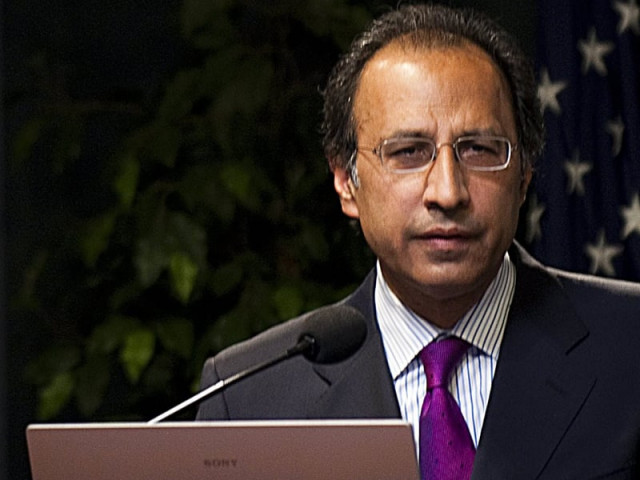Energy/fiscal policy: It’s going to get done quietly
The finance minister’s race to fix the energy crisis before the populists notice.

Finance Minister Abdul Hafeez Shaikh is racing against a clock. He knows that he has before the announcement of next year’s federal budget to fix the power crisis or else risk causing even more crippling damage to the nation’s energy infrastructure. The team at the finance ministry, however, appears to have come up with a plan, and not a bad one at that.
Though he was still a merchant banker at the time, Shaikh must have seen how the administration of former president Pervez Musharraf, after running an exceptionally tight ship when it came to fiscal responsibility, lost the plot entirely when election time came around – promising utterly unaffordable subsidies at a time of skyrocketing global commodity prices, running up the deficit and paying for it by simply printing more money, causing skyrocketing inflation.
Shaikh knows that as bad as Musharraf’s last year was, the Gilani administration – being a democratically elected left-wing government — is going to be even worse. He needs to lock in fiscal discipline now, before the calls for the poorly defined, yet frightfully expensive concept of ‘relief’ start flowing in from the simpletons in the media and even some of his own cabinet colleagues.
Energy subsidies equal between one-half and one-third of the budget deficit. If there were no subsidies, the government would be able to meet its budget deficit targets.
But in election season, the politicians from all sides of the aisle will start screaming for even more energy subsidies than the government currently spends now. And the minister can kiss all chances of restricting the budget deficit goodbye.
And so, the few people in the finance ministry who are committed to long-term planning have come up with a plan as simple as it is devious.
It goes something like this: first get the government, including the prime minister, to acknowledge the energy sector’s financial crisis (caused by the government’s inability to pay the subsidies it promises) as the primary problem. Secondly, propose a solution, including clearing the entire backlog of inter-corporate circular debt in the energy sector to get the power companies and refineries to start producing again at full capacity.
Thirdly — and this is the crucial part — do so by getting an international donor to finance the solution who will demand that the long-term problem (unaffordable subsidies and poor government management) be solved up front.
This is why the government is seeking financing for a solution to the circular debt problem from the Asian Development Bank. The ADB appears to even be amenable to a solution, willing to exchange all outstanding liabilities that the energy companies owe each other for cash. The Manila-based lender, however, is likely to demand a complete privatisation of the power distribution companies (eight of the nine in the country are state-owned) and an end to subsidies.
The populists — which include parties as diverse as the old leftists of the Pakistan Peoples Party and the young, naive crowd of the Pakistan Tehrik-i-Insaaf — are likely to scream that this is tantamount to giving up national sovereignty. In truth, it is.
But in fairness, the finance minister tried to persuade the country to do the right thing for its own sake without having to get a foreign lender to force us and the nation — through its elected representatives and the voice of the media — outright refused. Now Shaikh has to do it the hard way.
A lot can still go wrong, of course. The prime minister and the president may not get on board with the finance ministry’s solution (the petroleum ministry seems to be allied with the finance ministry but the water and power ministry seems opposed).
But one hopes that the finance minister succeeds in his plan. If he does not, the rupee is likely to plunge by close to 30% against the dollar in 2013 and inflation and interest rates are likely to flirt with 25%. How do I know this? Because the country made the same mistake in 2007 and paid for it that way in 2008.
Published in The Express Tribune, September 3rd, 2011.



















COMMENTS
Comments are moderated and generally will be posted if they are on-topic and not abusive.
For more information, please see our Comments FAQ